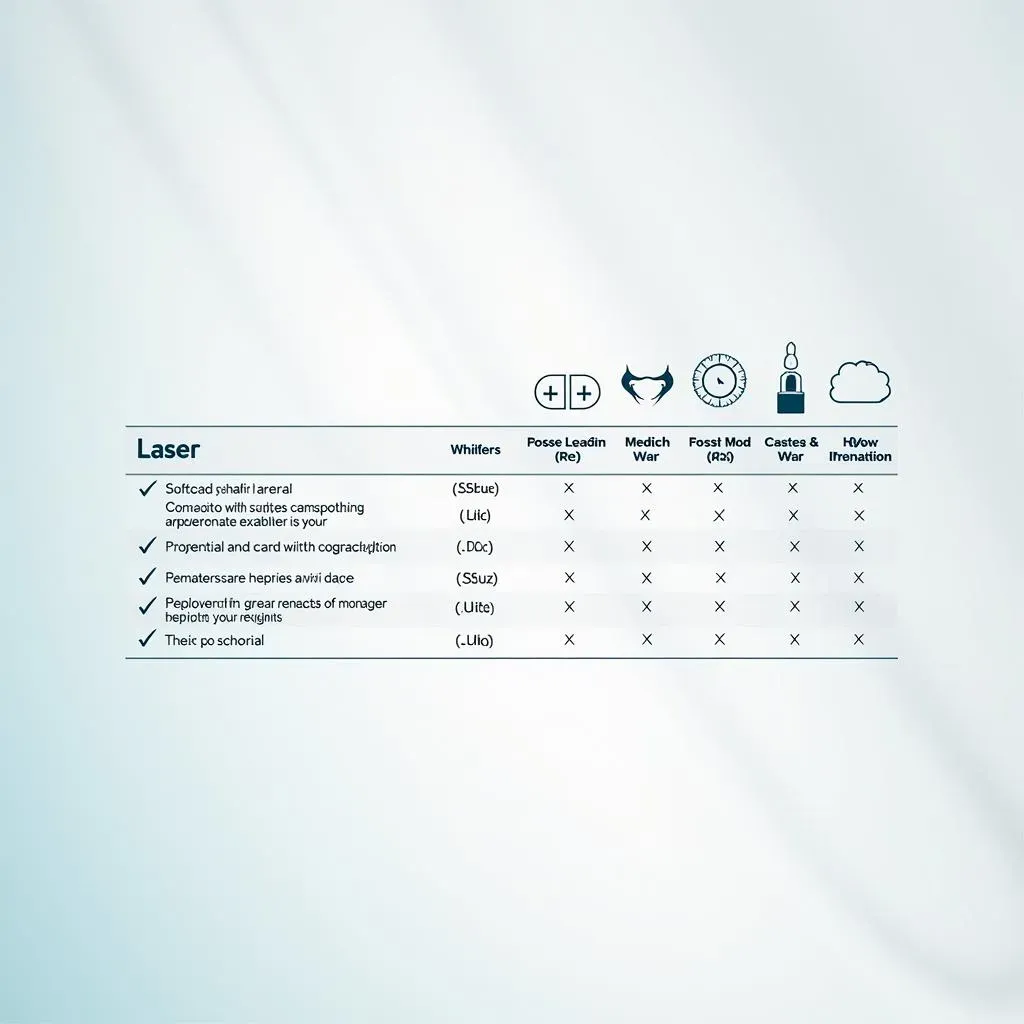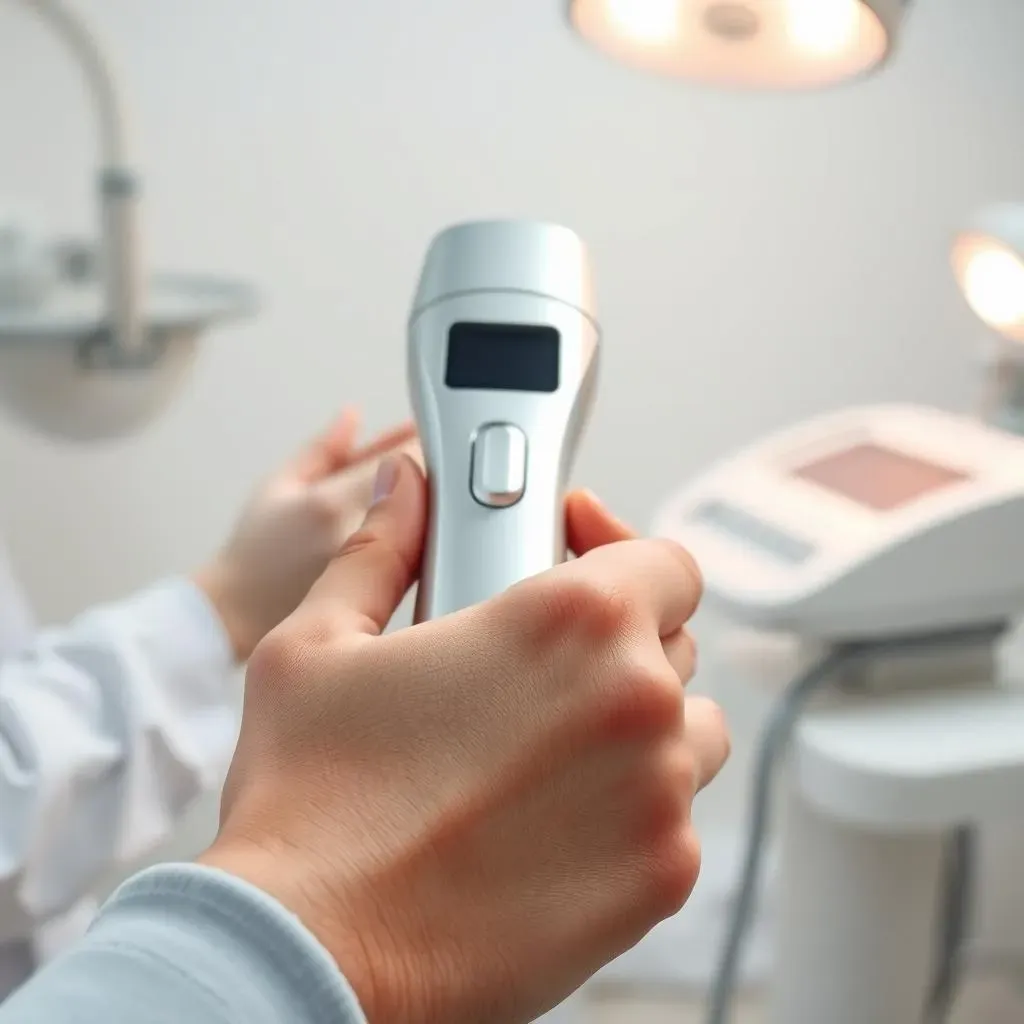Table of Contents
As the demand for smooth, hair-free skin continues to grow, laser hair removal has become an increasingly popular solution. However, with the rise of this cosmetic treatment comes a growing concern about laser hair removal safety. It's essential to understand the potential risks and benefits associated with this procedure to ensure a safe and effective experience. In this article, we'll delve into the world of laser hair removal safety, exploring the key considerations and precautions you should take before undergoing treatment. From understanding the different types of lasers used to recognizing the importance of choosing a qualified provider, we'll cover the crucial aspects of laser hair removal safety. By the end of this guide, you'll be equipped with the knowledge to make informed decisions about your laser hair removal treatment and prioritize your laser hair removal safety above all else.
Understanding Laser Hair Removal Safety Precautions

Understanding Laser Hair Removal Safety Precautions
Introduction to Laser Hair Removal Safety Precautions
Understanding laser hair removal safety precautions is crucial for anyone considering this cosmetic treatment. Laser hair removal is a popular solution for unwanted hair, but like any medical procedure, it comes with potential risks and side effects. To ensure a safe and effective experience, it's essential to take the necessary precautions and understand the potential risks involved. This includes choosing a qualified provider, following pre-treatment instructions, and being aware of the potential side effects.
The importance of laser hair removal safety precautions cannot be overstated. By taking the necessary precautions, individuals can minimize the risk of complications and ensure a successful treatment. This includes being aware of the different types of lasers used, understanding the potential risks and side effects, and following post-treatment instructions carefully.
Potential Risks | Potential Side Effects | Precautions |
|---|---|---|
Burns | Redness and swelling | Choose a qualified provider |
Scarring | Itching and dryness | Follow pre-treatment instructions |
Infection | Changes in skin pigmentation | Be aware of potential side effects |
Practical Tips for Ensuring Laser Hair Removal Safety Precautions
To ensure laser hair removal safety precautions, individuals should take several practical steps. This includes choosing a qualified provider, following pre-treatment instructions, and being aware of the potential side effects. It's also essential to understand the different types of lasers used and the potential risks involved. By taking these precautions, individuals can minimize the risk of complications and ensure a successful treatment.
Additionally, individuals should be aware of the importance of post-treatment care. This includes following instructions carefully, avoiding direct sun exposure, and using gentle skincare products. By taking these precautions, individuals can ensure a safe and effective recovery and minimize the risk of complications.
- Choose a qualified provider
- Follow pre-treatment instructions
- Be aware of potential side effects
- Understand the different types of lasers used
- Follow post-treatment instructions carefully
Laser Hair Removal Safety: Risks and Benefits to Consider

Laser Hair Removal Safety: Risks and Benefits to Consider
Understanding the Risks of Laser Hair Removal
When considering laser hair removal, it's essential to understand the potential risks involved. While laser hair removal is generally a safe procedure, there are some risks and side effects to be aware of. These can include burns, scarring, infection, and changes in skin pigmentation. It's crucial to choose a qualified provider and follow pre-treatment instructions carefully to minimize the risk of complications.
The risks of laser hair removal can be significant, especially if the procedure is not performed correctly. For example, using the wrong type of laser or failing to follow proper safety protocols can increase the risk of burns and scarring. Additionally, individuals with certain skin conditions, such as melasma or rosacea, may be more susceptible to side effects.
Risk | Description | Precaution |
|---|---|---|
Burns | Painful and potentially scarring | Choose a qualified provider |
Scarring | Permanent and potentially disfiguring | Follow pre-treatment instructions carefully |
Infection | Painful and potentially serious | Keep the treated area clean and dry |
Weighing the Benefits of Laser Hair Removal
While there are risks associated with laser hair removal, there are also many benefits to consider. For example, laser hair removal can be a highly effective way to remove unwanted hair, reducing the need for shaving, waxing, and other hair removal methods. Additionally, laser hair removal can be a long-term solution, with some individuals experiencing permanent hair reduction after a series of treatments.
The benefits of laser hair removal can be significant, especially for individuals who have struggled with unwanted hair for years. For example, laser hair removal can improve self-confidence and reduce the time and money spent on hair removal methods. Additionally, laser hair removal can be a convenient and relatively painless procedure, especially when compared to other hair removal methods.
- Effective hair removal
- Long-term solution
- Improved self-confidence
- Reduced time and money spent on hair removal
- Convenient and relatively painless procedure
Ensuring Laser Hair Removal Safety: Tips and Best Practices

Ensuring Laser Hair Removal Safety: Tips and Best Practices
Ensuring laser hair removal safety is crucial for a successful treatment. To achieve this, it's essential to follow some best practices and tips. Firstly, choose a qualified and experienced provider who has a good track record of performing laser hair removal procedures. This will minimize the risk of complications and ensure that you receive the best possible treatment. Additionally, make sure to follow all pre-treatment instructions carefully, including avoiding sun exposure, waxing, and tweezing, as these can increase the risk of side effects.
Pre-Treatment Instructions | Importance | Consequences of Not Following |
|---|---|---|
Avoiding sun exposure | High | Increased risk of burns and scarring |
Avoiding waxing and tweezing | Medium | Increased risk of ingrown hairs and skin irritation |
Shaving the area to be treated | Low | No significant consequences |
It's also important to be aware of the potential side effects of laser hair removal and take steps to minimize them. For example, applying a topical anesthetic cream before the treatment can help reduce discomfort, and using a cooling gel or ice pack after the treatment can help reduce redness and swelling. By following these tips and best practices, you can ensure a safe and successful laser hair removal treatment.
- Choose a qualified and experienced provider
- Follow all pre-treatment instructions carefully
- Be aware of the potential side effects and take steps to minimize them
- Apply a topical anesthetic cream before the treatment
- Use a cooling gel or ice pack after the treatment
Maximizing Laser Hair Removal Safety: Choosing the Right Provider

Maximizing Laser Hair Removal Safety: Choosing the Right Provider
Importance of Choosing the Right Provider for Laser Hair Removal Safety
Choosing the right provider is crucial for maximizing laser hair removal safety. A qualified and experienced provider can significantly reduce the risk of complications and ensure a successful treatment. When selecting a provider, it's essential to consider their qualifications, experience, and reputation. Look for a provider who is a board-certified dermatologist or plastic surgeon and has extensive experience in performing laser hair removal procedures.
A good provider will also take the time to explain the procedure, discuss potential risks and side effects, and answer any questions you may have. They will also ensure that you are a suitable candidate for the treatment and provide personalized advice and guidance throughout the process. By choosing a reputable and experienced provider, you can minimize the risk of complications and ensure a safe and effective treatment.
Qualifications to Look for in a Provider | Importance | Consequences of Not Having |
|---|---|---|
Board-certified dermatologist or plastic surgeon | High | Increased risk of complications and side effects |
Extensive experience in performing laser hair removal procedures | Medium | Potential for inadequate treatment or poor results |
Good reputation and patient reviews | Low | Potential for poor customer service or unprofessional behavior |
Red Flags to Watch Out for When Choosing a Laser Hair Removal Provider
While choosing a provider, it's essential to be aware of red flags that may indicate a lack of qualifications, experience, or reputation. For example, if a provider is offering significantly lower prices than others, it may be a sign of inadequate equipment or insufficient training. Additionally, if a provider is pushy or aggressive in their sales tactics, it may be a sign of a lack of professionalism or ethics.
It's also important to be cautious of providers who claim to have "miracle" or "permanent" solutions, as these claims are often exaggerated or misleading. A good provider will be transparent about the potential risks and side effects of the treatment and will provide realistic expectations and guidance throughout the process. By being aware of these red flags, you can make an informed decision and choose a provider who prioritizes your safety and well-being.
- Significantly lower prices than others
- Pushy or aggressive sales tactics
- Claims of "miracle" or "permanent" solutions
- Lack of transparency about potential risks and side effects
- Poor patient reviews or reputation
